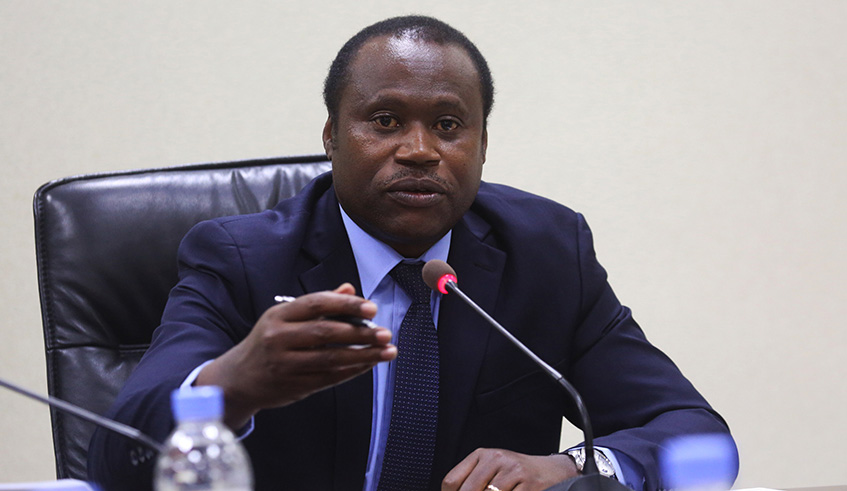

Minister for Finance and Economic Planning Uzziel Ndagijimana has expressed optimism about a meeting to be held in Kigali week to help reach a regional consensus on how to move forward with the implementation of the African Continental Free Trade Area in Eastern Africa (AfCFTA).
The three-day Intergovernmental Committee of Experts (ICE) conference will be hosted by the UN Economic Commission for Africa in collaboration with the government of Rwanda.
Speaking to The New Times, Ndagijimana said: "It is an important meeting and timely topic given the current process of continental integration that promotes intra-African trade.”
"It is an annual meeting organized by the UN Economic Commission for Africa on selected topics. This year, the meeting will take place in Kigali and this year’s topic is about the African Continental Free Trade Area (AfCFTA).”
Signed in Kigali in March, the AfCFTA is a trade agreement initially endorsed by 44 AU member states, with the goal of creating a single market across the continent.
If ratified, the trade agreement would result in the largest free-trade area in terms of participating countries since the formation of the World Trade Organization.
During the March AU Summit in Kigali 44 countries first endorsed the deal but there are now 49 signatories, out of 55.
Andrew Mold, Officer-in-Charge Sub-regional Office for Eastern Africa (SRO-EA) of the United Nations Economic Commission for Africa (ECA), said the level of participation will be high.
There will be ministers, senior government economists, as well as representatives from regional think-tanks and academics.
The United Nations Economic Commission for Africa is facilitator of the conference.
Mold said: "The primary objective of this meeting is to build a consensus around the ratification and implementation of the AfCFTA.
So far, within the region, only two countries – Rwanda and Kenya – have ratified while from across the continent nine ratifications have been secured.
"We have reasons to hope the meeting will lead to other countries fast-tracking their own ratification processes.”
Mold said it is important that policymakers from the different countries share their different perspectives on the way forward.
Among others, his office’s simulation work suggests that East Africa exports to Africa would increase by 31 percent if tariffs are eliminated on intra-African trade, and provide a welfare boost of US$ 1.4 billion.
Mold’s view is that the AU Summit that endorsed the deal in March "was a great success.”
With the understanding that the time-frame for actual implementation "may be longer than some of us would hope,” he is of the view that current circumstances both within the continent and outside "means we do not have the luxury of that length of time.”
"My own feeling is that we need to really empower the Regional Economic Communities like the East African Community, so that they are in the driving seat in terms of getting the AfCFTA actually implemented.”
The ICE is a regional meeting for regional experts and policymakers.
It is a body set up by the UN General Assembly and is the statutory organ of the ECA Office for Eastern Africa.
It includes representatives of the 14 member States served by the office, as well as Regional Economic Communities (RECs) and Intergovernmental Organizations (IGOs) of the sub-region, development partners, research centres and other stakeholders.
More than 250 participants from the private sector from the 14 member states – Burundi, Comoros, D.R. Congo, Djibouti, Ethiopia, Eritrea, Kenya, Madagascar, Rwanda, Seychelles, Somalia, South Sudan, Tanzania and Uganda – will attend the Kigali meeting.
editorial@newtimes.co.rw


